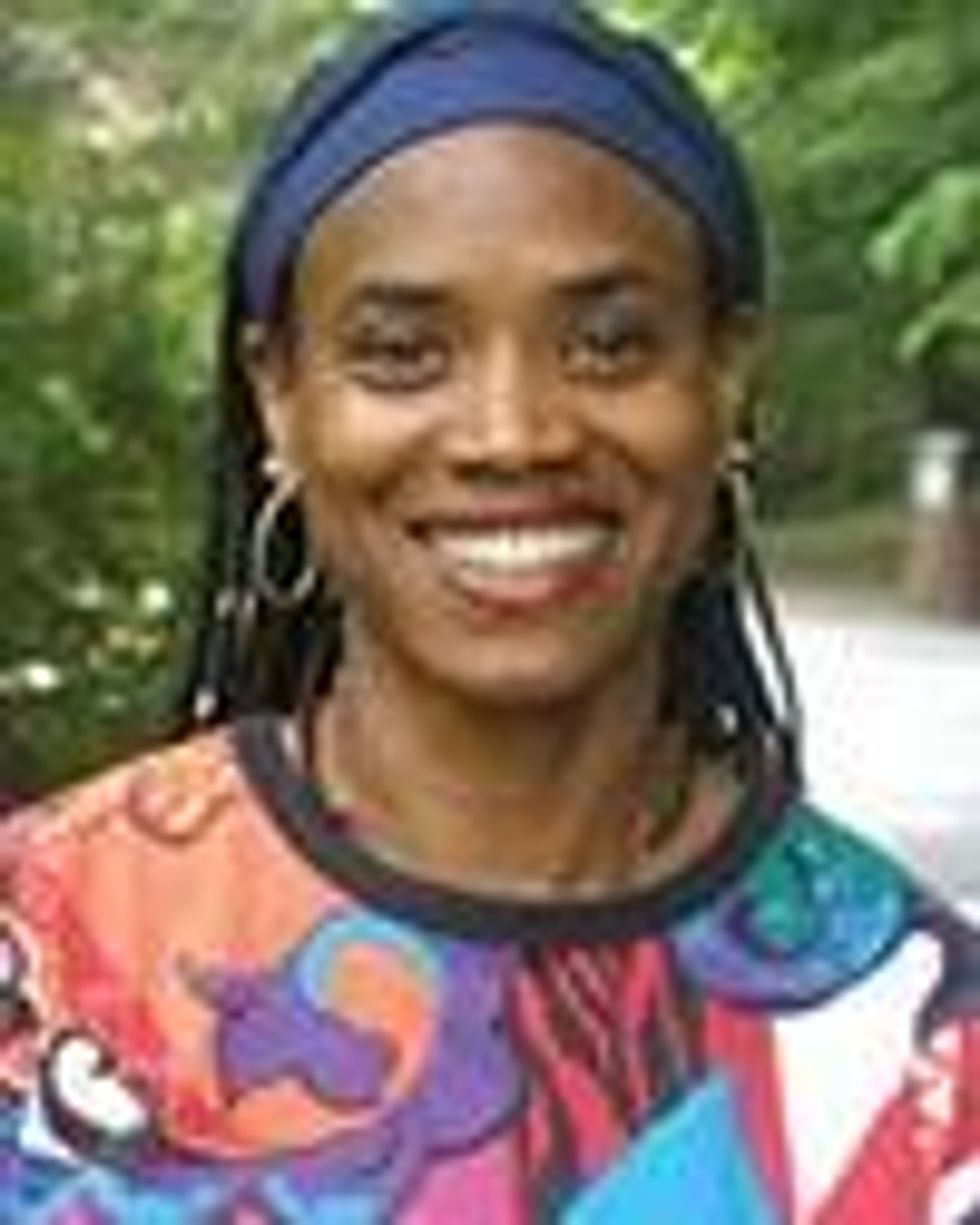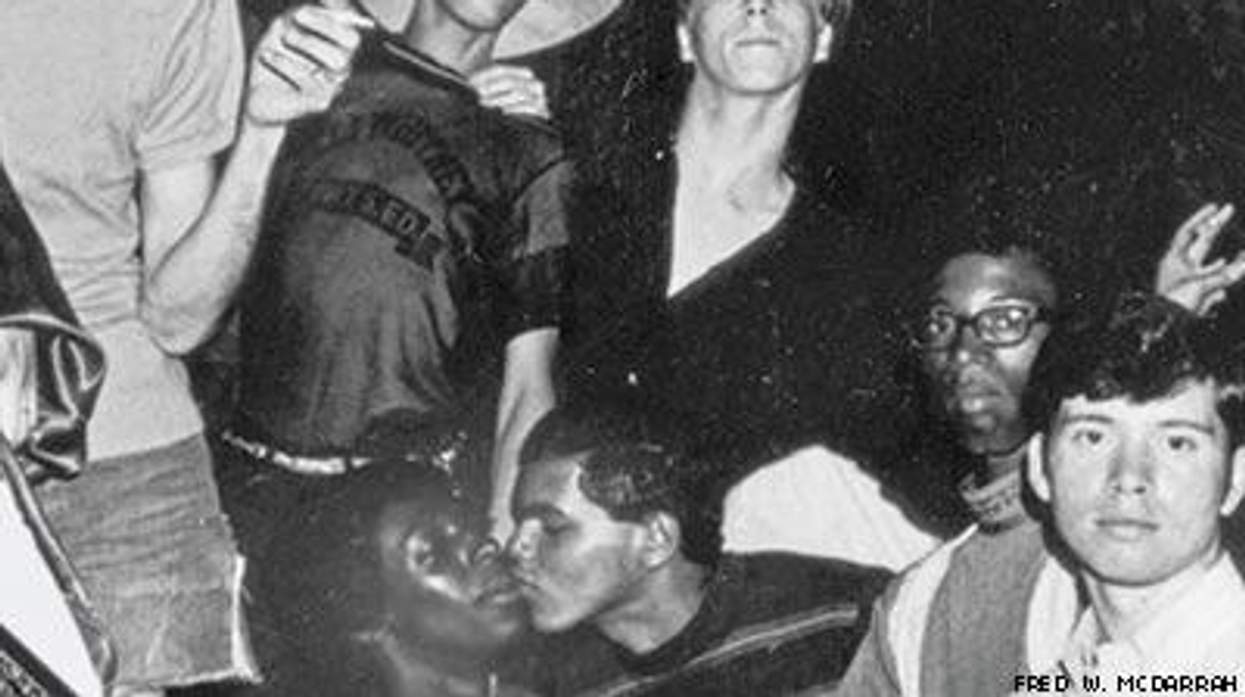"By institutionalizing memory, resisting the onset of oblivion, recalling the memory of tragedy that for long years remained hidden or unrecognized and by assigning its proper place in the human conscience, we respond to our duty to remember." --UNESCO Director-General Koichiro Matsuura1
The upcoming film Stonewall is disturbing because of its apparent whitewashing of a historic moment that turned into a movement. When I look back at the first night of the Stonewall Inn riots, I could have never imagined its future importance. The first night played out no differently from previous riots with black Americans and white policemen. And so too, it was initially underreported. But I was there.
Friday, June 27, was my last day of school that year, 1969. And with school out, my middle-school cronies and I looked forward to a summer reprieve from the near-constant rioting against Italian, Irish, and Jewish public school kids for being bused into their neighborhoods. However, the summer months in Brooklyn's African-American enclaves only escalated rioting between the New York Police Department and us. During this tumultuous decade of black rage and white police raids, knee-jerk responses to each other's slights easily set the stage for a conflagration, creating both instantaneous and momentary alliances against police brutality in these black communities that crossed class, age, ethnicity, and sexual orientations barriers.
That night of June 27 started out no differently than any hot and humid summer Friday night in my neighborhood. Past midnight, folks with no air-conditioning or working fans in their homes were hanging outside. Some lounged on the fire escapes, while others were on the stoops of their brownstones laughing and shooting the breeze. Some were in heated discussion of black revolutionary politics, while the Holy Rollers were competing with each other over Scripture. The Jenkins boys were drumming softly on their congas to the hot breezy mood of the night air. And directly under the street lamp was an old beat-up folding card table where the Fletchers and the Andersons, lifelong friends and neighbors, were shouting over a game of bid whist.
The sight of Dupree galloping up the block toward us abruptly interrupted the calm of the first hour of Saturday, June 28. Dupree stopped in front of the gaming table and yelled out, "The pigs across the bridge are beating up on black f****ts -- right now!" Cissy Anderson, who was just moments from heading to bed, let out a bloodcurdling scream that shook us and brought a momentary halt to everything. Nate Anderson grabbed his wife to comfort her and said, "Cissy, calm down."
When Dupree stopped in front of Mr. Fletcher's game table, he was signaling to his aunt and uncle that their son Birdie, who sang like a beautiful songbird, was more than likely in the melee across the bridge. Everyone knew Birdie was gay, and we wondered where he and his "brother-girls," as he dubbed them, had gone on the weekends when they laughed and spoke in code on Sundays about their exploits while robing-up for choir.
Cissy detested that her eldest, Nate Turner "Birdie" Anderson Jr., went outside the community to a white neighborhood to be himself -- Greenwich Village in the 1800s had housed the largest population of former slaves in the country, but gentrification forced racial relocation and led to Harlem becoming the mecca of black America.
Nate Sr. also worried about his eldest son. When Birdie told his dad he was gay, his father asked him if he understood that he didn't know how to keep him safe, especially if his son wandered out of his purview. When his voice rose above Dupree's and the crowd, we were as shocked to silence as we were by Cissy's bloodcurdling scream. "My son is somewhere there, and I need you all to help me find him and bring him home safely to his mother and me."
Coming out of the subway station at Christopher Street, we could hear the commotion. The shoving and pushing by both protesters and police yanked three of us away from the core group; we were left to fend for ourselves.
As the momentum of the crowd pushed my small group to Waverly Place, a block away from the Stonewall, we witnessed two white cops pummeling a black drag queen. "I should shove this stick up your ass," said one of the cops as he pulled up her dress with a nightstick in his hand. The taller of the two cops yanked off her wig and laughingly tossed it to the other cop. In spotting us, the cop who caught the wig threw it at us yelling, "You n****r fags get away!" The wig missed and landed about a foot away from us, but the cop's words hit, striking fear.
On the first night of the Stonewall Inn riots, African-Americans and Latinos were the largest percentage of the protesters, because we heavily frequented the Stonewall Inn. For black and Latino homeless youth and young adults who slept in nearby Christopher Park, the bar was their stable domicile. The Stonewall Inn being raided was nothing new -- gay bars in the Village were routinely raided in the 1960s, but many believe the decision to raid Stonewall that fateful night happened because the police were increasingly incensed by how many LGBT people of color hung out there.
The Stonewall riots of June 27-29, 1969, in Greenwich Village started on the backs of working class African-American and Latino queers who patronized that bar. Those brown and black LGBTQ people are not only absent from the photos of that night but have been bleached from its written history. Many LGBTQ blacks and Latinos argue that one of the reasons for the gulf between whites and themselves is about how the dominant queer community rewrote and continues to control the narrative of Stonewall.
*The names in the story has been changed to protect identites.
















